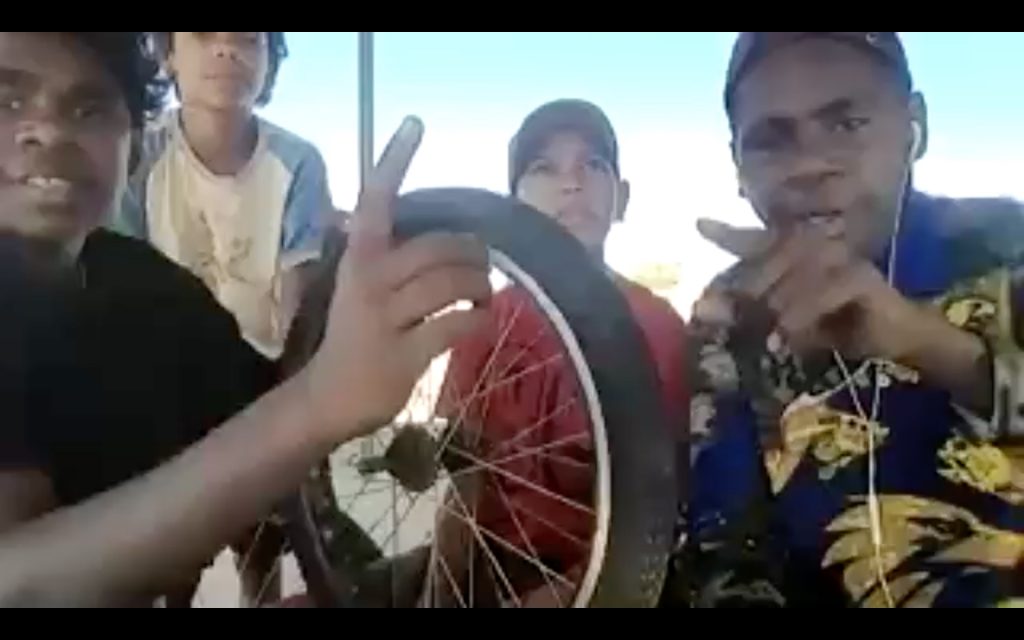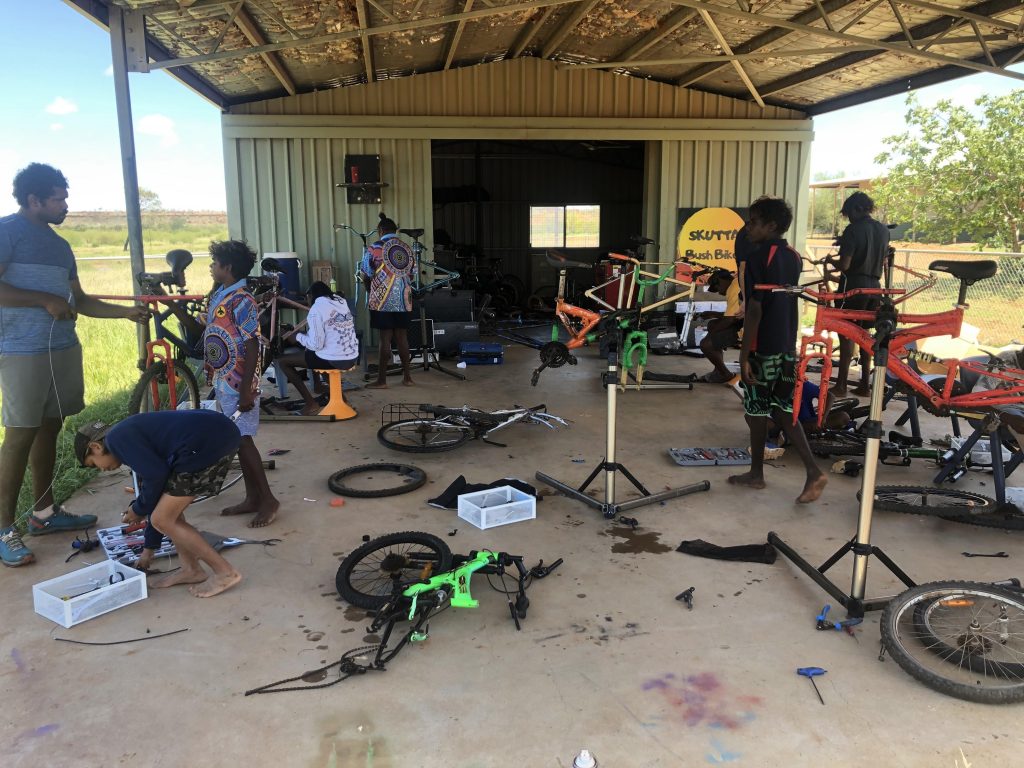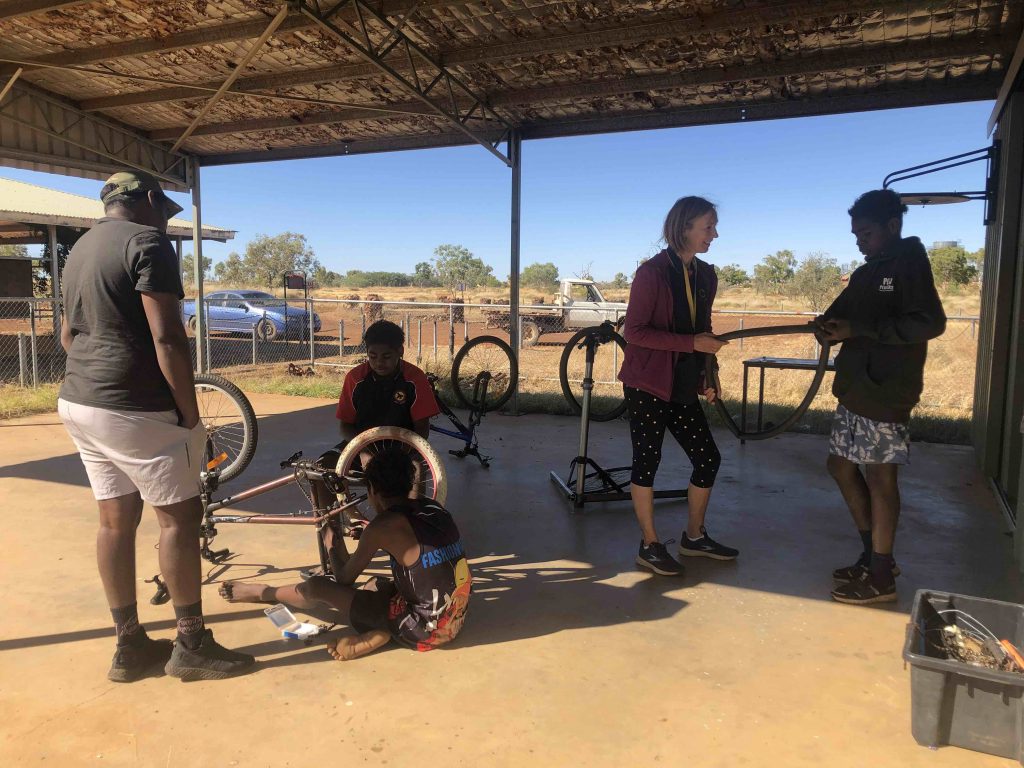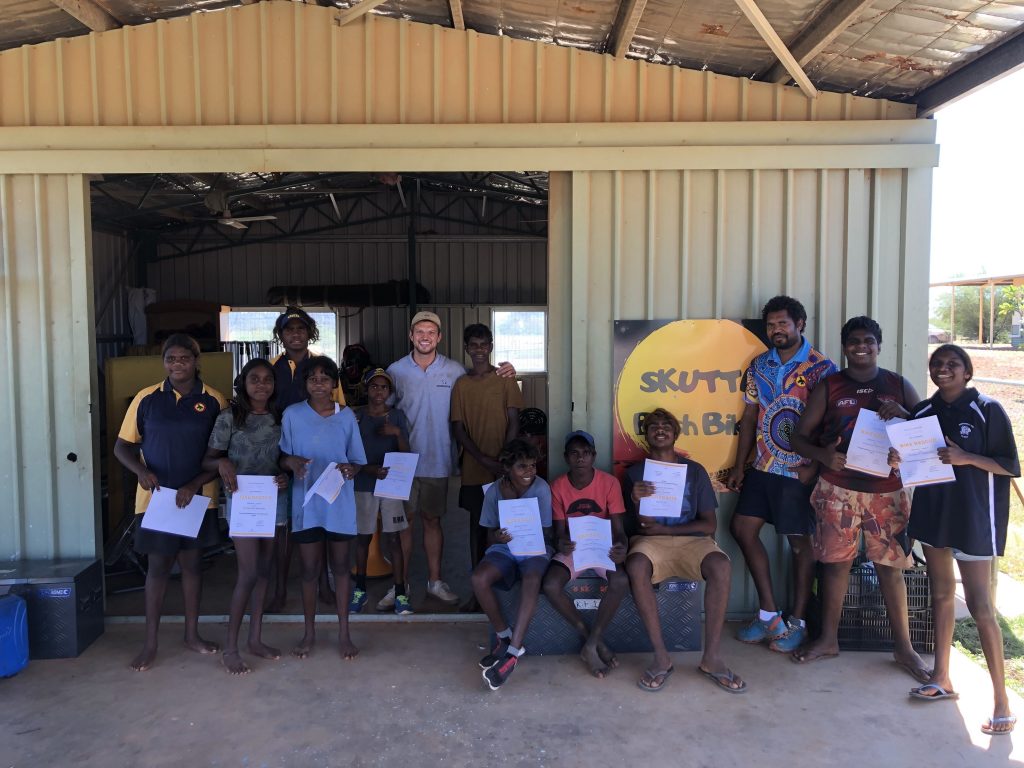Foundation for Rural & Regional Renewal (FRRR)
Karridale, in the Blackwood region of southwest Western Australia, is home to a rich agricultural community. Established in 1991, the Lower Blackwood Land Conservation District Committee (LBLCDC) draws its membership from local landholders who have an interest in sustainable agricultural and land management practices that will protect and conserve their special environment.
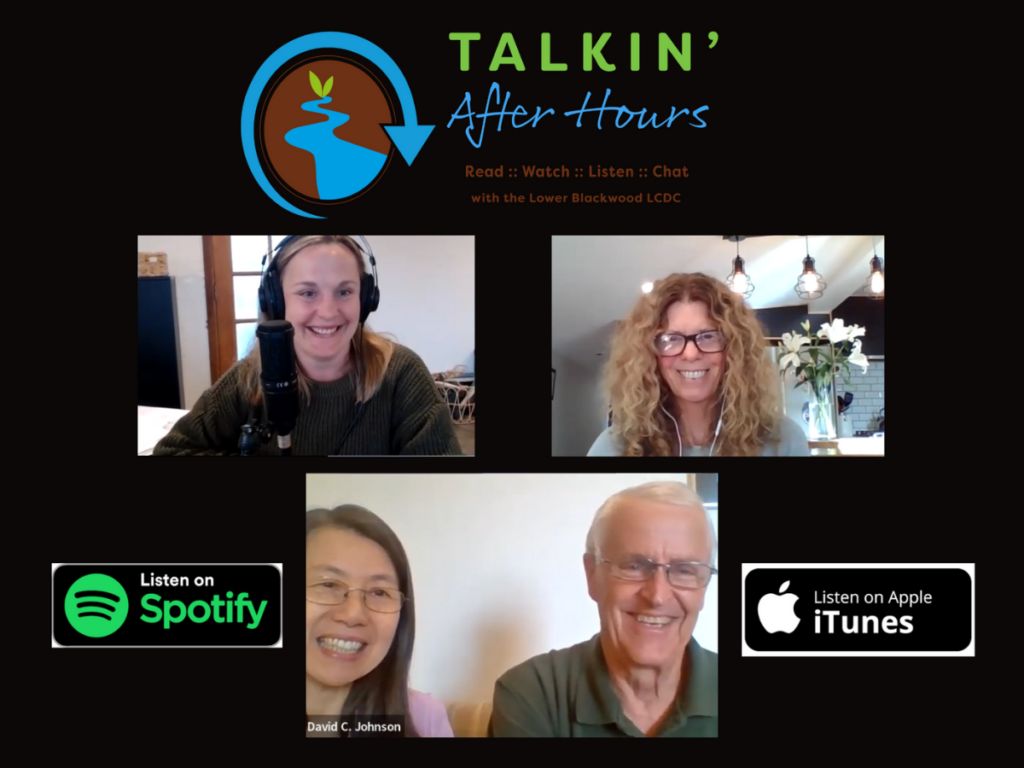
There is growing interest and awareness among local farmers of regenerative agriculture principles as a way to sustainably manage their land and productivity and strengthen their drought resilience. However, the LBLCDC identified a need for greater understanding of these principles, as well as how to implement them.
They noted a lack of access to resources and expertise to support farmers in creating resilient and responsive landscapes. They also saw the need for more peer-to-peer support and believed that conversations could combat isolation and foster a sense of community among local farmers.
In 2022, the LBLCDC decided to develop an online community forum and information hub that could bring the community together to connect and learn. Supported by the Australian Government’s Future Drought Fund, FRRR provided $49,850 through the Networks to Build Drought Resilience program to assist the LBLCDC with the design and delivery of their digital platform.
Driven by a content manager, the establishment of their online community (known as Talkin’ After Hours) allowed for the development of significant new drought resilience content. Although hampered by short timelines, the platform produced and delivered six webinars and five podcasts, with a further podcast, six written pieces and six short videos also developed and ready for release over the coming months. Each piece of content focused on one farm landscape management component that assists land managers to prepare for drought.
Feedback from platform users has been incredibly positive, with one user noting that they got more useful information from one 90-minute Talkin’ After Hours webinar “than in a whole year’s worth of ag school”.
“The easy access and on-demand format of the content allows landholders to access learning opportunities and information at a time and place that is convenient for them. It also offers the ability to share ideas, discuss and compare notes on issues, actions and solutions with other community members in a safe and convenient space, and promotes a more adaptable and resourceful community.”
The LBLCDC has been excited by the level of engagement with the platform, based on webinar registrations and content download figures. Across the six webinars delivered, there were 525 registrations and 11,175 YouTube views. In addition to this, there were 1,482 downloads of the podcasts. There was an even split of male and female participants involved, with a broad range of community members engaging with the project. While 70% of participants were between 45-64 years of age, it’s anticipated that given the online delivery format of the project, engagement will continue to grow, particularly with younger community members as they access podcasts and webinars recordings.
This new network is expected to expand as new community members become aware of the project. Going forward, they intend to continue expanding the platform to reach more community members as they release their developed content, and also intend to engage with their local Indigenous group, the Undalup Association Inc, for their input and ideas on content.
Talkin’ After Hours has increased the social connection of Lower Blackwood farmers and landholders. The interactive and engaging platform has helped build their resilience to future drought and fostered community and connection by developing a cohesive, relevant and applicable resource base for individual and community learning.
“The ability to be able to share ideas, discuss and compare notes on issues, actions and solutions with other community members in a safe and convenient space has and will promote a more adaptable and resourceful community.”
Upper North Farming Systems’ (UNSF’s) mission is to facilitate capacity building and empowerment of the agricultural community across the upper north region of South Australia. The group focuses on adapting and connecting farmers so they can learn from each other and from their shared experiences, and not farm in isolation. They do this by bringing farmers together in what they call Hubs. It’s a large and diverse geographical area, encompassing Booleroo Centre, Crystal Brook, Hallet, Jamestown, Laura, Peterborough, Nelshaby, Orroroo, Quorn and Wilmington. It’s a harsh climate, and when times are tough, they are very tough. The region has experienced significant declines in population and services over the past 30 years and the social fabric of communities in many areas has become frayed.
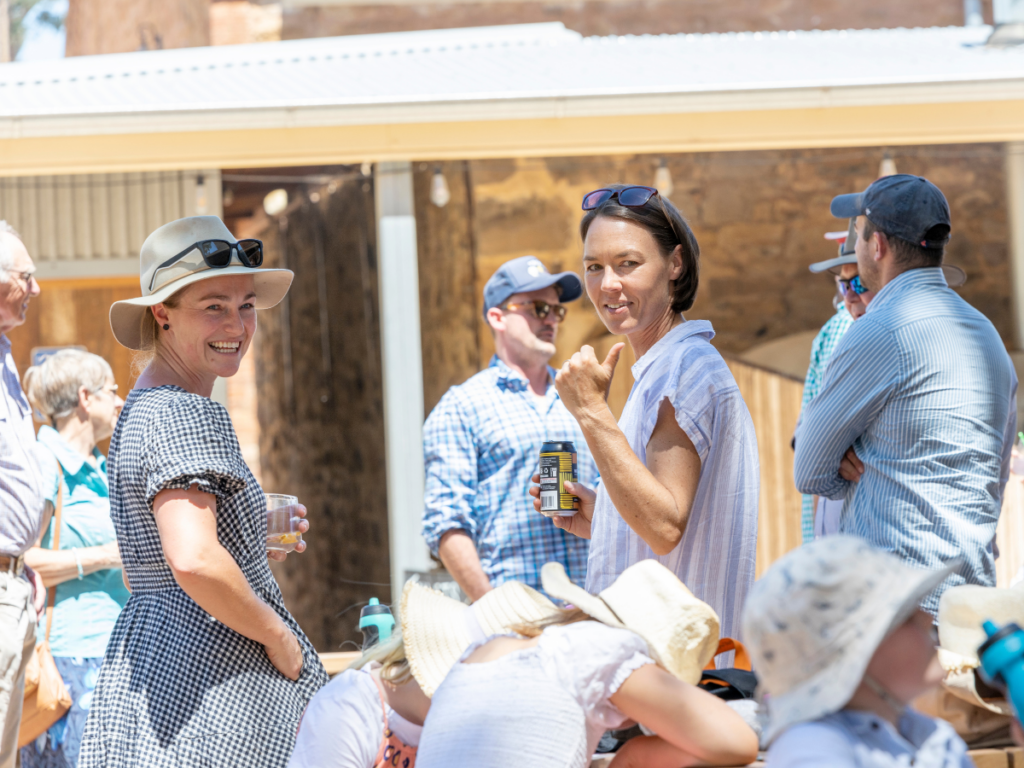
With the majority of communities in the region still reliant on agriculture, the social toll of the latest drought – the longest dry on record in 2020/21 – was evident, with symptoms of volunteer burn-out, self-isolation and mental health related issues.
Farmers know technology is essential, and farming systems have evolved significantly since the previous major drought, with stubble retention, improved efficiency of water use and a better understanding of livestock nutrition.
These communities are adaptable, open to innovation and aided through programs that promote not only professional connection, but also social and community connections, especially as these areas are typically not well-serviced by government research bodies and private consultants.
There are currently 11 Hubs under UNFS – eight geographical Hubs: Booleroo / Appila, Morchard / Orroroo / Pekina / Black Rock, Melrose, Gladstone / Laura, Jamestown, Nelshaby, Quorn and Wilmington and three non-geographic Hubs: Ladies on the Land, New Farmers and the Ag Tech Hub. The establishment of the Hubs in 2019 recognised the need to retain networks within the group and foster the tackling of issues on a smaller scale, as well as the importance of coming together on a social level.
A $20,000 Networks to Build Drought Resilience grant enabled UNFS to deliver the ‘Tools, Tech and Transformation’ workshop for farmers and agribusinesses. The key event was followed by a series of nine Hub events to provide the opportunity for networking, info-sharing, and learning about new farming systems and techniques to improve drought resilience. A ‘farmer-to-farmer’ learning model was recognised as a valuable and efficient mechanism to improve the productivity, profitability and sustainability of the agricultural industry in low rainfall zones.
“Through the Tools, Technology and Transformation event series, farmers and landholders have been provided with an abundance of information that can be adapted and changed on farm. Therefore, these tools that have been taken from the events can help farmers change their way of thinking and help their preparedness for drought or any other climate challenges they may face.”
The project reached 205 participants across 10 events that spanned six sector networks (Farm Business, Research Institute, NFP’s / Community Organisations, Consultants, Off Farm Business, Government Agency). Targeting farmers and agri-business directly, attendees learnt about tools aimed at improving efficiencies, sustainability and outcomes of operations like automatic feeding, as well as technology evolutions and business systems like satellite imagery on the farm scale, and succession and transition planning. Importantly, the solutions offered were all commercially available to be adopted on-farm, and farmers were able to speak directly with professionals in the fields, with discussions encouraged. They left with up-to-date knowledge to help them build more resilient farming systems.
The Hub events ensured accessibility for farmers who couldn’t afford too much time away from their land. They were able to talk with neighbours and researchers about the outcomes of the 2021 season and what they might be able to do better next time. Questions like when and how to de-stock, how to ensure you’re looking after genetics and bloodlines, and considerations around agisting, planting times, and upgrading tech vs repairing machinery were raised. Each Hub session included a training session in a tool, tech or system (identified from the key event by their elected Hub Representative), as well as a planning session identifying how to implement the new skills and knowledge on-farm, and where they require additional support.
Through the project, participants built knowledge and understanding of the risks posed by drought and climate change and learnt new concepts on a range of topics that can be adapted for drought and climate preparedness.
Communities had the opportunity to connect, train, converse (something many would not normally do in their usual day-to-day business) and lean on systems and each other so they are more prepared for future challenges.
Gooniyandi Country
The town of Yiyili is located six hours east of Broome in the heart of the Kimberley region. At the town school, 90% of the time, fewer than one third of students are in attendance. This is often due to young people being impacted by intergenerational trauma and grief, family and domestic violence and drug and alcohol abuse, all of which are contributing to poor mental and physical health in the youth of Yiyili.
With engagement in education and work steadily decreasing, last year the Yiyili Aboriginal School decided to start ‘BikeRescue’, a program where young people could attend multiple workshops each week to refurbish and repair second-hand bikes.
Supported with a $25,000 Strengthening Rural Communities grant, funded by John T Reid Charitable Trusts, the training was carried out by Youth Councillors, as well as bicycle maintenance and refurbishment specialists. During the sessions, the students were taught how to adjust gears, fit new brakes, clean and maintain bikes and organise the workshop to function more efficiently. There was also a strong focus on self-management, resilience and self-regulation.
At the end of the program, the students sold the bikes to give them an understanding of how to run a small business. As an added benefit, this meant that there were affordable bikes available to children and adults in the community. The students that participated in the program were also allowed to each keep a bike for themselves.
As a result, the young people were really proud of the bikes they had managed to rescue, and of having invested their time and energy into a productive project. By participating, they also strengthened their community connections and developed more positive attitudes towards school and work.
As an added bonus, community members have been employed by the school on a casual basis to help students run the bicycle repair workshop and the Yiyili community group have secured funding to continue running the program.
UPDATE: The workshop was recorded and is available to watch below.
Free online workshop
FRRR is inviting community members in Myrtleford, Whittlesea, Beaufort, St Arnaud, Paynesville, Korumburra and Yarra Junction to a free online workshop on Thursday 15 July to find out how FRRR’s Disaster Resilient: Future Ready (DR:FR) program can support them build their community resilience for times of disruption and disaster.
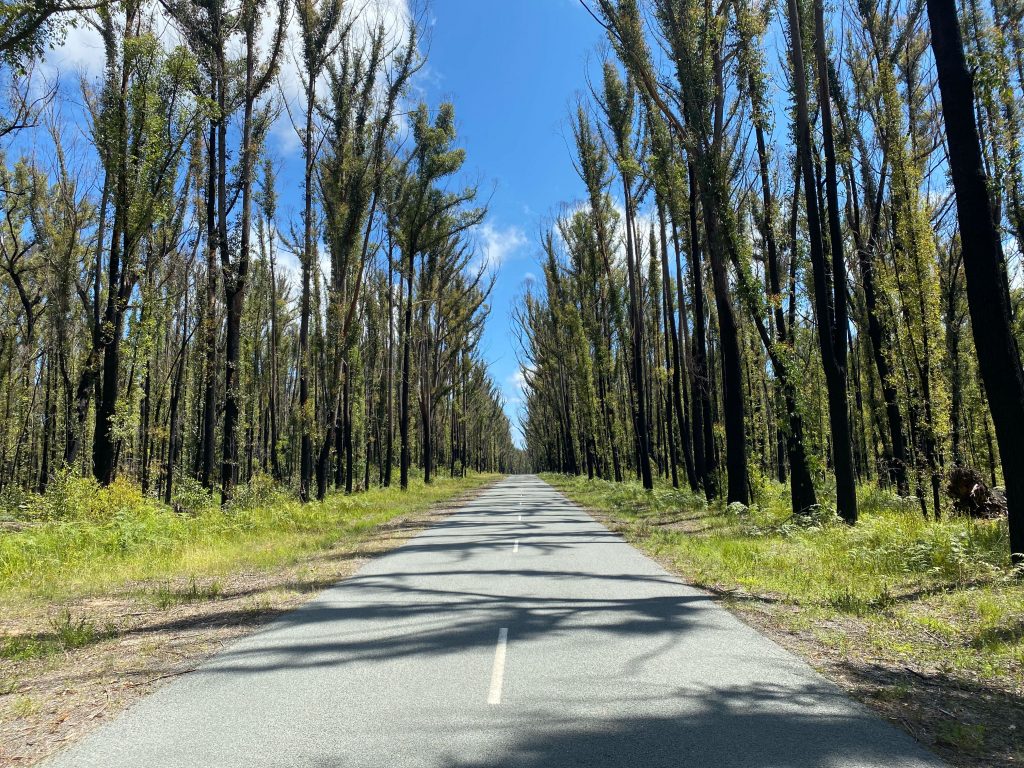
This is the second workshop in a series of events designed for community members who are interested in developing a practical understanding of community resilience and exploring ways in which communities can lead and strengthen their resilience to thrive and evolve in positive ways when faced with the impacts of climate, natural disasters and other disruptions.
With support from guest speaker Paul Ryan, Director of the Australian Resilience Centre, this online conversation will explore what “resilience” means, how people and communities are building resilience and why it matters to you and your community.
The seven communities invited to take part in the workshop have been identified by FRRR as areas that experience high frequencies of flooding, bushfire, drought, and/or heatwave and may be willing to participate in the DR:FR program.
Nina O’Brien, FRRR’s Disaster Resilience & Recovery Lead, explains that when locals actively work together and are given the right support, they can determine what needs to be done to help the community be well prepared before and bounce back stronger after a disaster.
“This workshop is part of an exploratory phase of the multi-year program where we engage and work with communities to build knowledge of climate risks, encourage collaboration, understand their ‘readiness’ and willingness to collectively strengthen their resilience and participate in the program long-term.
“I encourage all community leaders, and anyone who wants to be part of a local movement that is strengthening community resilience so that they have the capacity to evolve in positive ways when faced with disruptions and disasters , to participate in this free online workshop and information session,” Ms O’Brien said.
The workshop is free and open to all interested community members, including Traditional Owners, youth, business owners, farmers, sports clubs, schools, volunteer emergency services, environmental volunteers, arts groups, health professionals and local government staff from the communities of Myrtleford, Whittlesea, Beaufort, St Arnaud, Paynesville, Korumburra and Yarra Junction.
Those who took part in the launch webinar late last year are also encouraged to join.
This live workshop will take placeon Thursday 15 July, 11:00am to 12:30pm AEST with the recording made available to those who register.
Register at: https://events.humanitix.com/community_resilience. For more information contact Jacqui Bell, DR:FR Coordinator at j.bell@frrr.org.au or on 1800 170 020.
FRRR acknowledges the support of The Maple-Brown Family Foundation, Doc Ross Family Foundation, H & L Hecht Trust, Lord Mayor’s Charitable Foundation and the Sidney Myer Fund in making this program possible.
To find out more about the Disaster Resilient: Future Ready program visit FRRR’s website: www.frrr.org.au/drfr-victoria/.
Local NFPs in Nowra area invited to have their say
FRRR is inviting not-for-profit organisations (NFPs) in the Nowra region to take part in an upcoming series of workshops to plan how the Foundation’s Investing in Rural Community Futures (IRCF) program can support them to create stronger organisations for a stronger community.
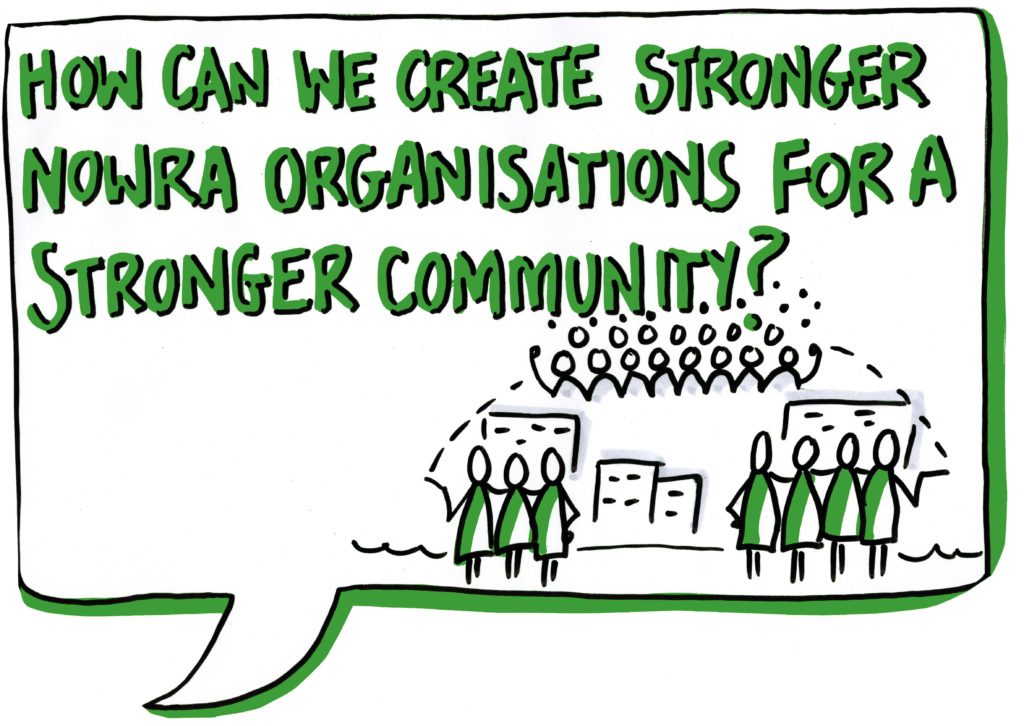
FRRR’s IRCF program is run in partnership with The Snow Foundation. Now in its second year, the five-year program is designed to strengthen local NFPs on the South Coast through localised support, resources and funding, so they can make lasting impacts in the community.
Called “Community Roadmap” (CR) workshops, these sessions will allow NFPs in the Nowra region to come together and map out how they will leverage the funding and support of the IRCF program over the next four years to maximise opportunities for long-term sustainability.
Kate Dezarnaulds, FRRR’s IRCF Program Coordinator, said that the workshops will look to the future, helping Nowra NFPs uncover shared goals and challenges, as well as offer a safe space for participants to reflect on and share the considerable challenges of the past year.
“These workshops are the next stage in the IRCF program. They are a great opportunity for local NFPs to come together and celebrate their resilience, as well as aid collaboration and sharing of resources,” Ms Dezarnaulds said.
“As a result of these Community Roadmap workshops, the Nowra NFP community will have a list of priority projects that the IRCF program can then support over the next four years with grants and expert advice.
“The Community Roadmap is likely to uncover shared goals and needs such as strategic planning, governance training, digital marketing, finance advice and support, and additional resources to support innovation, sustainability and recovery.
“We are working with expert local facilitators, Campfire Coop, and invite a wide range of representatives from local NFPs in the Nowra region, including those not currently funded through the IRCF program, to come along to the workshops and have their say,” Ms Dezarnaulds said.
FRRR also announced $83,000 in funding for three projects in Nowra as part of the program’s initial Start-Up Grants. These projects will help to support and connect the community to respond to the challenges of 2020. In total, nine projects have already been funded through the IRCF program, thanks to the generosity of The Snow Foundation.
Nowra Community Roadmap workshops
Community leaders are invited to come along to either the day or evening session.
| When | Day session: Tuesday 1 June, 9.30am-3.30pm (lunch provided); or Evening session: Wednesday 2 June, 5-9pm (light meal provided) |
| Where | Day session: Nowra School of Arts Evening session: Bomaderry Bowling Club |
| How | Day session: Bookings via link Evening session: Bookings via link |
Nowra Start-Up Grant Recipients
- Pathways Foundation Ltd – Pathways Foundation – $30,000 – Accelerate the implementation of a new COVID-adapted and localised strategic plan with seed funding for the appointment of a community development officer.
- South Coast Women’s Health and Welfare Aboriginal Corporation (trading as Waminda) – Waminda’s Social Enterprise Initiatives – $23,000 – Strengthen the financial sustainability of Waminda while developing the skills and confidence of Aboriginal women to secure employment, through the implementation of a business plan for three social enterprises.
- Noah’s Inclusion Services – Enhancing the strength, effectiveness, and longevity of the Noah’s Inclusion Services workforce – $30,000 – Rejuvenate the pipeline of available allied health care workers and support succession planning for Noah’s leadership position s through a coaching program and a long-term student placement partnership with the University of Sydney.
See the funded Nowra projects already underway here.
For more information about the Investing in Rural Community Futures program in NSW South Coast region visit – https://frrr.org.au/funding/people-grants/investing-in-rural-community-futures-nsw-south-coast/.

